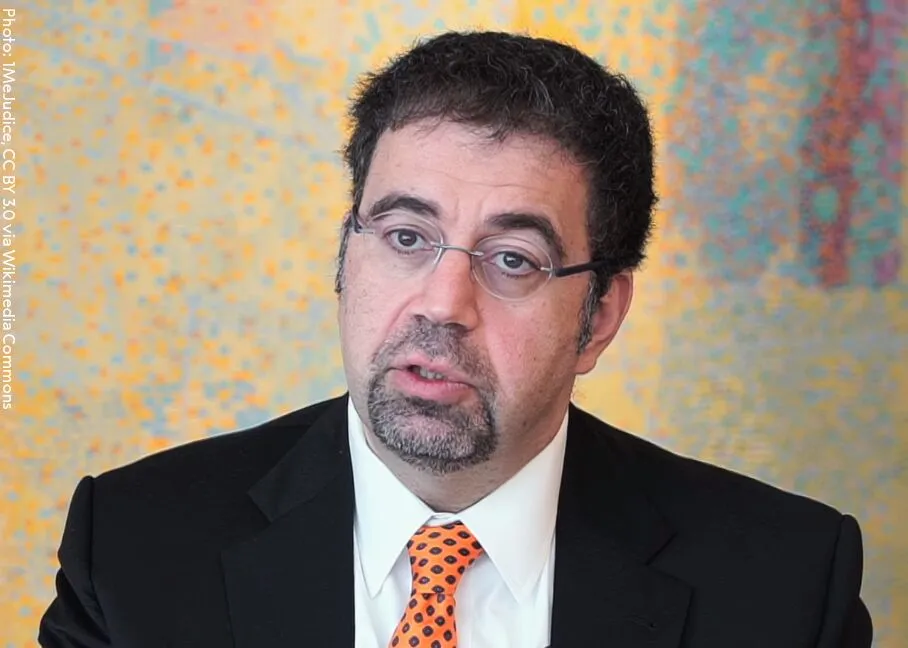Daron Acemoglu awarded the Nobel Prize in economics

Turkish Armenian economist Daron Acemoglu has been awarded the Nobel Prize in economic sciences.
Acemoglu, a professor at the Massachusetts Institute of Technology, was honored alongside Simon Johnson from MIT and James A. Robinson from the University of Chicago. The Sveriges Riksbank Prize in Economic Sciences in Memory of Alfred Nobel 2024 was announced on October 14, 2024. The laureates will share a prize of 11 million Swedish kronor, about $1.058 million.
“This year’s laureates in the economic sciences — Daron Acemoglu, Simon Johnson and James Robinson — have demonstrated the importance of societal institutions for a country’s prosperity. Societies with a poor rule of law and institutions that exploit the population do not generate growth or change for the better. The laureates’ research helps us understand why,” a press release from the Royal Swedish Academy of Sciences states.
The team’s research studies how the introduction of societal institutions by European colonizers across the world centuries ago continues to account for differences in countries’ prosperity. Countries with inclusive institutions enjoy relative prosperity today, whereas countries with extractive institutions face low economic growth.
Their research shows that these institutions can change over time in cases of conflict over how resources and decision-making power are allocated in society. The masses can exercise power by mobilizing and threatening the ruling elite. Those in power then face a dilemma — placate the masses through economic reforms, or transfer decision-making power and establish democracy.
“Reducing the vast differences in income between countries is one of our time’s greatest challenges. The laureates have demonstrated the importance of societal institutions for achieving this,” says Jakob Svensson, chair of the Committee for the Prize in Economic Sciences.
Acemoglu was sitting on his hotel balcony in Athens when he received the phone call that he had been awarded a Nobel Prize.
“You never dream of such things. You can dream, but you never expect such things, let’s say. It’s a wonderful event,” he said in an interview with the Royal Swedish Academy of Sciences.
Acemoglu, who is the co-author alongside Robinson of New York Times bestseller Why Nations Fail: Power, Prosperity, and Poverty, says that the colonial experiment transformed the institutional trajectory of more than half of the world.
“If a country is 50 percent richer than another one, you might say, perhaps, that’s natural. They have some resources or some other advantages. But there’s nothing natural about 30, 40, 50 fold differences in income per capita in a globalized connected world,” he said.
Looking at future prospects for today’s institutions, Acemoglu worries about support for democracy, which he says is at an all time low throughout the Western world.
“Democracy is not easy to make work, because democracy is about democratic citizenship. It’s about consensus. It’s about communication. It’s about accepting defeat, making compromises, talking and understanding the other side, and all of those things are always difficult.
“They become more difficult during times of turbulence, which we are living through, and they become harder when the infrastructure, for example, the communication infrastructure, makes this sort of democratic citizenship harder. It’s not the only factor, but social media has certainly played that role,” he said.
Acemoglu was born in Istanbul in 1967 to an Armenian family. His father was a lawyer and lecturer at the University of Istanbul, while his mother was a principal and teacher at an Armenian middle school. Acemoglu was educated in the United Kingdom, receiving his Ph.D. in 1992 from the London School of Economics and Political Science.
“I’m proud of all my heritages. I’m delighted that I have been able to learn from many different experiences,” he said.


Daron Acemoglu is an apologist for Turkey, like many Istanbul Armenians. He regularly expresses his patriotism and concern for Turkey, even though he has been living the United States for decades and is also a US citizen. Just because he is the second Armenian to win the Nobel prize, should not obscure this fact. I was happy when Ardem Patapoutian became the first Armenian (from Lebanon) to win the Nobel prize. But this apologist Istanbul Armenian deserves no praise.
Yes he deserves all the praise in the world. Thanks to his open-minded, common-sense attitude regarding Armeno-Turkish relations, he is contributing to peace and healing,Edwin and a better future for ALL Armenians, both in Turkey AND Armenia.
Bravo Daron!